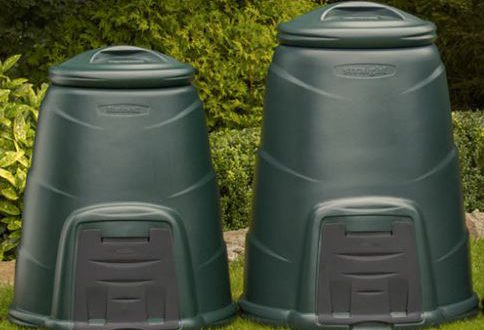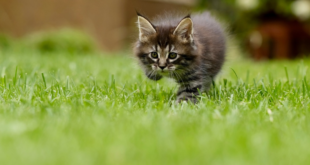Home composting is environmentally friendly and will save you money while helping your garden to grow.
Home composting
There is no magic art to composting. Our local council collects kitchen waste, this is a terrible waste, use their box to collect kitchen waste and add to your compost bin when you go outside.
The secret is to be use both green and brown. Grass cuttings need balancing with other matter, too much grass results in a slimy mess. A well built compost heap generates heat, reaching up to 150°F, this quicken the composting cycle and helps to kill off weed seeds. Regular turning over helps to achieve this.
Green compost items (rot down quickly)
- Uncooked fruit skins
- Vegetable peelings
- Tea bags
- Nettles
- Comfrey leaves
- Soft green prunings
- Young weed growth however avoid weeds with seeds.
Brown compost items (rot down slower)
- Cardboard e.g. egg boxes, toilet rolls
- Waste paper, ideally a little shredded paper
- Bedding from herbivore pets e.g. rabbits and guinea pigs
- Tough hedge clippings
- Bracken
- Sawdust
- Crushed egg shells
I also use a modest amount of compost accelerator such as Garotta to help it along. Ideally have two bins, so when one is full, it can be left to do its thing! Digging over helps to mix it up, and hasten the process. Worms are the compost heaps friend, and it’s a good home for them.
Things to avoid
- Twigs and Autumn leaves
- Meat
- Fish
- Cooked food
- Cat and dog litter
- Disposable nappies
- Fireplace ash
Using a Shredder
Home shredders are available from DIY stores. Unlike commercial models their capacity, i.e. the branch thickness that can be shred is limited. Also being less powerful, they take some time and can easily jam up. Nevertheless, by shredding even modest branches you will have good easy to compost brown matter for your bin and less to put in your green council bins. It’s amazing how much shredding reduces volume.
Like most things, you get what you pay for. Electric home model prices start at about £100 going up to around £500. The cheapest models are likely to lack power and capacity. Look for powerful motors (2500 Watt at least) and strong construction. Petrol models are dearer, more powerful and more convenient. When using, always wear goggles and ear defenders.
Compost bins
Composting is a natural process, as the content of your bin decomposes, heat is given off. The more the heat is retained, the quicker and more successful the process. Compost bins come in all shapes and sizes, ours is made from breeze blocks, it retains the heat well. If DIY bins are not for you, plastic or wooden designs are available in store or online and from some councils. Having filled our permanent bin, I’ve invested in additional plastic bins which are working well.
Emptying your compost bin
When ready, your compost will be well rotted down and dark in colour, possibly the top layers will not be ready, so put this aside as a started for your next batch. Look out for worms and return these to your bin. Spread a layer on your beds, there is no need to fork in, over time, worms will do that for you.
There are several valuable sources of information on websites such as
 Gardeners Club The Gardeners Club is a free to join online club for everyone with an interest in gardening and gardens.
Gardeners Club The Gardeners Club is a free to join online club for everyone with an interest in gardening and gardens.






